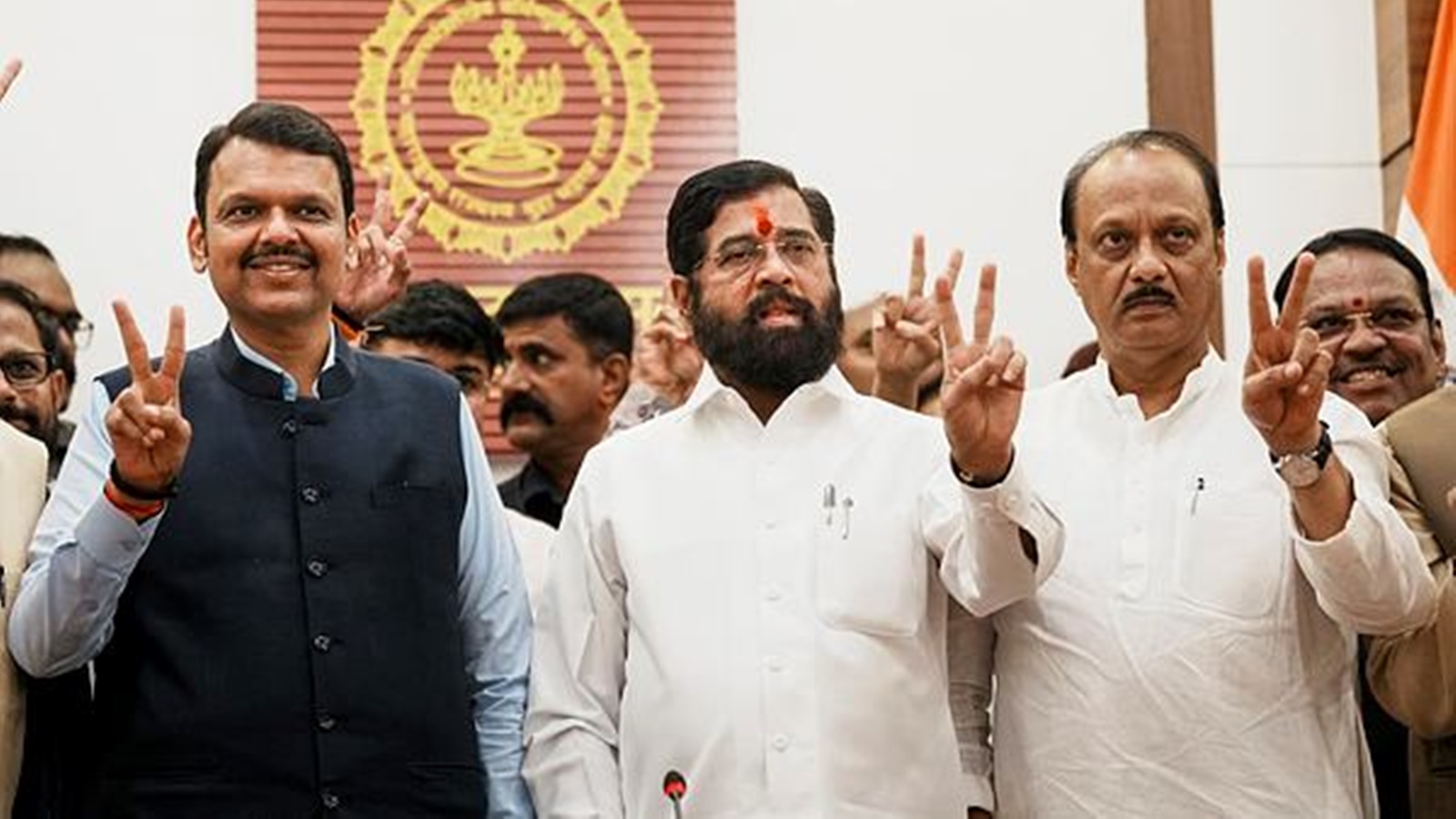 |
|
The political landscape of Maharashtra has witnessed a significant shift with the announcement of Devendra Fadnavis's return as Chief Minister. This development marks a surprising turn of events, given the complex coalition dynamics and power struggles that have characterized the state's recent political history. The BJP's strategic maneuvering has resulted in a formidable alliance, bringing together unlikely partners in the form of Eknath Shinde's faction of the Shiv Sena and Ajit Pawar's breakaway faction of the Nationalist Congress Party (NCP). This coalition, while seemingly improbable, has secured a clear majority in the state assembly, enabling the BJP to once again assume the reins of power. The appointment of Fadnavis as CM, along with Shinde and Pawar as Deputy CMs, underscores the significant bargaining power of the BJP and the strategic calculations that have guided its recent actions. This power-sharing arrangement is carefully constructed to manage the ambitions of various factions while simultaneously solidifying the BJP's position as the dominant force in Maharashtra politics. The success of this alliance hinges on the ability of these disparate factions to navigate their ideological differences and work together for the betterment of the state. The coming months will be a critical test of their ability to coalesce around a shared governance agenda and deliver on their promises to the electorate.
The inclusion of Eknath Shinde and Ajit Pawar as Deputy Chief Ministers reflects the significant role played by both factions in bringing about this political realignment. Shinde's rebellion against Uddhav Thackeray's Shiv Sena in 2022 was a pivotal moment that destabilized the previous Maha Vikas Aghadi (MVA) government. His decision to join hands with the BJP solidified the BJP’s position as a major player and paved the way for this latest coalition. Ajit Pawar's decision to side with the BJP, a significant departure from his uncle Sharad Pawar's NCP, is equally striking. This move is largely attributed to strategic calculations, indicating a potential power struggle within the NCP and the allure of ministerial positions and influence within the new government. The alliance between these seemingly disparate factions is a complex political calculation, and its longevity will be determined by the ability of its leaders to maintain a delicate balance of power. This necessitates negotiation and compromise, particularly in the allocation of portfolios and the resolution of internal disagreements among the parties.
The allocation of ministerial portfolios will be crucial in determining the stability and efficacy of this new government. The BJP, with its substantial legislative strength, is expected to retain key portfolios like Home and Finance. However, the sharing of other significant portfolios, such as Urban Development and Revenue, with the Shiv Sena and NCP factions will be essential in maintaining the unity of the alliance. The negotiations surrounding portfolio allocation are expected to be intense, with each party striving to secure key positions that influence policy formulation and implementation. This process necessitates careful balancing and compromise, requiring the BJP to ensure its allies feel adequately represented and empowered. Failure to address these internal power dynamics could create friction within the coalition, jeopardizing the government's stability and its ability to deliver on its promises. The allocation of ministerial berths also holds significant implications for the broader political dynamics of the state. The distribution of resources and influence will directly impact the balance of power among the alliance partners, shaping their future political trajectories.
The formation of this new government in Maharashtra has profound implications for the state's political future. The alliance between the BJP, Shinde's Shiv Sena, and Ajit Pawar's NCP is a powerful combination, but its success hinges on the ability of the three parties to navigate internal divisions and maintain a cohesive governance agenda. The sharing of power and resources, the allocation of portfolios, and the fulfillment of the promises made during coalition negotiations will all be crucial determinants of the government's stability. The government's policy decisions and their impact on the state's economy, infrastructure, and social programs will be closely scrutinized by the public. The ability of this alliance to effectively address the challenges facing Maharashtra, from economic development to social welfare, will directly influence the public's perception of their performance and ultimately determine their long-term prospects. Furthermore, the formation of this government represents a decisive victory for the BJP in Maharashtra, enhancing its standing at the national level and potentially shaping future coalition strategies in other states.
The previous alliances in Maharashtra have demonstrated the inherent fragility of such coalitions. The short-lived government formed by Fadnavis and Ajit Pawar in 2019 serves as a cautionary tale. The current alliance, while seemingly more robust given its larger legislative strength, faces similar challenges. Maintaining stability requires consistent negotiation, compromise, and a shared commitment to governance. The ability of the BJP to effectively manage the expectations and ambitions of its allies will be crucial in ensuring the government's long-term viability. The potential for internal disagreements and power struggles remains a constant threat, and the government's success will hinge on its ability to address these challenges effectively. The political dynamics of Maharashtra are complex and constantly shifting, and the future of this government remains uncertain. However, the current alliance presents a significant opportunity for the BJP to consolidate its power and influence in the state, while the outcome will depend heavily on the ability of its leaders to effectively manage the complex political landscape.
Source: Devendra Fadnavis set to become Maharashtra CM, Eknath Shinde and Ajit Pawar Deputy CMs
